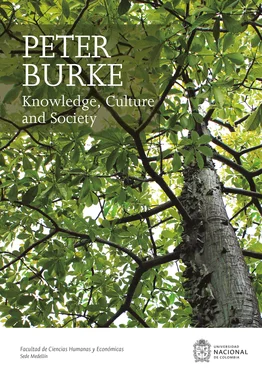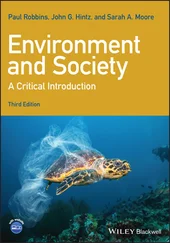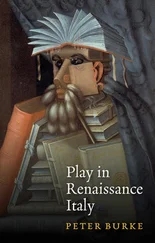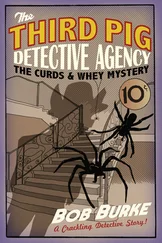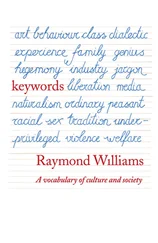Starting from this historic-genealogical frame, sketched in a somewhat coarse way, I understand cultural history as a perspective of analysis concerned with the logics and rationalities that guide society, governments, politics, the economy, people’s actions and their ideas about the world; a perspective that also brings human conflicts to the centre, and not only meaning, as more culturalist tendencies have done by using cultural analysis in various disciplines, forgetting the necessary anchoring in society that every analysis dealing with human societies must retain. 40Cultural practices, as well as representations and knowledge emanating from them, are socially differentiated and, in turn, influence and transform the surroundings in which they are produced, become appropriated and start circulating (culture circuit = production, circulation and appropriation, which, by the way, must be unravelled during the research process).
As Pierre Bourdieu showed in Practical Reason, his theory of action, 41social agents act and are equipped with a practical sense, an acquired system of perceptual preferences, as well as with cognitive structures typical of each culture and/or particular human group. So, it’s therefore possible and necessary to reveal what he calls “the intrinsic dynamic of practices”, that is, translated into my own words, the logic, strategies and rationalities with which social relationships are weaved and produced, including conflicts, of course, since social relationships are relationships of symbolic force, which may or may not be shaped as relationships of physical force. Karl Marx (and Max Weber of course) had already emphasized this important part of domination mechanisms: symbolic domination 42, which became explicit in such difficult life conditions by Antonio Gramsci in his Jail Notebooks: cultural hegemony, hegemonic block, subordinate classes…On the other hand, Georg Simmel showed us (1904), with midday clarity, that conflict lies at the centre of all human relationships and is, most of the time, a constructive force 43; in the same way, Italian Microhistory brought the role of conflict to the centre of its concerns, along with the role of different perceptions and appropriations of the social world by diverse groups, 44against generalisations established by the notion of mentality.
The West has set itself up as the norm of knowledge, and its wise men, whom we call scientists, used for decades, under the shadow of colonial expansion, a censorial right to qualify, classify, and revile other-cultures and their knowledge; exotic cultures with which disciplines like Anthropology and the History of Premodern Cultures have dealt, as they have with the subordinate knowledge of the West itself, offspring of the same societies…This is not new. Michelet himself had brought attention to that fact in his well-known book The Witch, where he ascertained that witch hunting had taken place, partly, to deprive women of their traditional medical-healing knowledge, which he characterized as feminine, and T.S. Elliot, when analysing the self-centredness of culture, also wondered about how to assume the conflict that ensues in the face of diversity. 45
This rejection or undermining is a product of the Enlightenment. We can’t even imagine how enlightened we are, how close we still are to Diderot, D’Alambert or Kant…I invite you to read the enjoyable book of Tzvetan Todorov about the Enlightenment, written for a wide audience, in which he shows how we are still enlightened: The Spirit of the Enlightenment. 46Since, as Adorno and Horkheimer wrote in 1944, in their Dialectic of the Enlightenment: 47the strategy of reason is, already from the Odyssey’s logos, in a veiled or explicit way, a structure of domination.
This structure has been applied for centuries, in many parts of the world and with diverse strategies (territorial, nationalist, economic, etc.), through colonialism, a “global shared experience” (Jürgen Habermas), which has been strong during processes of knowledge domination (colonialism of knowledge) and of global neo-colonialisms in our contemporary consumer societies, which also exercise domination through knowledge and its transmission media (mass media, web, …) in the form of already-globalised new colonialisms. And, during these domination processes, great treasures have been lost, especially for traditional cultures. 48
Since magical knowledge and traditional medicine, a kind of knowledge unrecognized and disqualified by erudite and ruling groups in Europe and America, is one of my research topics, I want to show how, in the end, other types of knowledge fulfil the same order requirements as those applied to erudite academic knowledge, the offspring of Western universities. 49This task, it seems to me, is pertinent in a country of such cultural diversity, where many forms of other-knowledge live together, many of which, unfortunately, now begin to disappear without being fully included in our social world. And here I think again about the book on popular culture by Professor Burke, which presents a moment when, thanks to the expansion of erudite thinking, the accelerated disappearance of popular knowledge in Europe and certain places of America began.
In short, we can say: knowledge, different ways of thinking and rationalising, and the subsequent knowledge that derives from such a symbolic stream and from learning abilities (Sperber), available in each culture (Geertz), vary from one society, community, or even sociocultural group to another, and respond to a general symbolic dispositive typical of the human species (Sperber, Cassirer, Durkheim, Boas, Turner, Lévi-Strauss, Durand…). As Giovanni Levi showed, in the great book guided and compiled by Professor Burke, Formas de hacer historia, even within the same culture or community, symbolic structures in different social contexts produce a “multiplicity of representations that is fragmented and differentiated”, 50which materializes in different practices and knowledge (magical, discursive, political, medical, economical practices….).
Magical thinking, against what has been and, surprisingly, continues to be held by some people today, is neither part of a pre-logical nor of a primitive mentality (Lucien Lévy-Bruhl), nor of inferior culture’s superstitions. It is also not a first step, prior to scientific knowledge, as the fathers of anthropology –Tylor and Frazer– or a historian like Robert Mandrou, among others, claimed. It is a complete and coherent system. In its internal coherence, it postulates determinisms as well, and it demands order, but its causality principle varies, as shown in an exemplary way by Edward E. Evans-Pritchard in Witchcraft, Oracles and Magic among the Azande [1937], where he established, against the ideas of his time, the epistemological relativity of other ways of knowledge, by showing that their causality may answer to rationalities different from ours, and that they can also be logical. 51
Like science, magical thinking displays a principle of internal rationalization, being therefore systematic, and like every cognitive apparatus, it pretends to classify experience and nature. It is, as Lévi-Strauss named it, a wild way of thinking, a science of the concrete. Henri Hubert and Marcell Mauss described magical determinism in the following way: it has rules, laws that must and can be found again, and its principal feature resides in the importance given to symbolic thinking. 52A symbolic way of thinking - and here we return to what we said at the beginning (Cassirer) – that is also characteristic of cognitive apparatus like religion, art, and science, some of whose topmost examples are mathematics and geometry.
Magical acts have precise functions in social life: to produce long distance healing, disease, and fortune; to modify meteorological conditions in order to restore the order of nature when it has been compromised by an external agent; within shamanism, all practices concerning health; to establish contact with the dead, so that, with their supernatural powers, they can participate and foster the existence of the living; hexes or death by voodoo… All of them are magical acts, with precise roles within a community, that pretend to work on the world (of behaviours, feelings, or on the physical world itself) by symbolic means (at distance, voluntarily or involuntarily, with prayers, incantations, wishes, curses…), by physical means (filters, amulets…) or by a combination of both. Therefore, we are also talking about a technology, just as it happens with western science: it has technological applications. 53
Читать дальше
